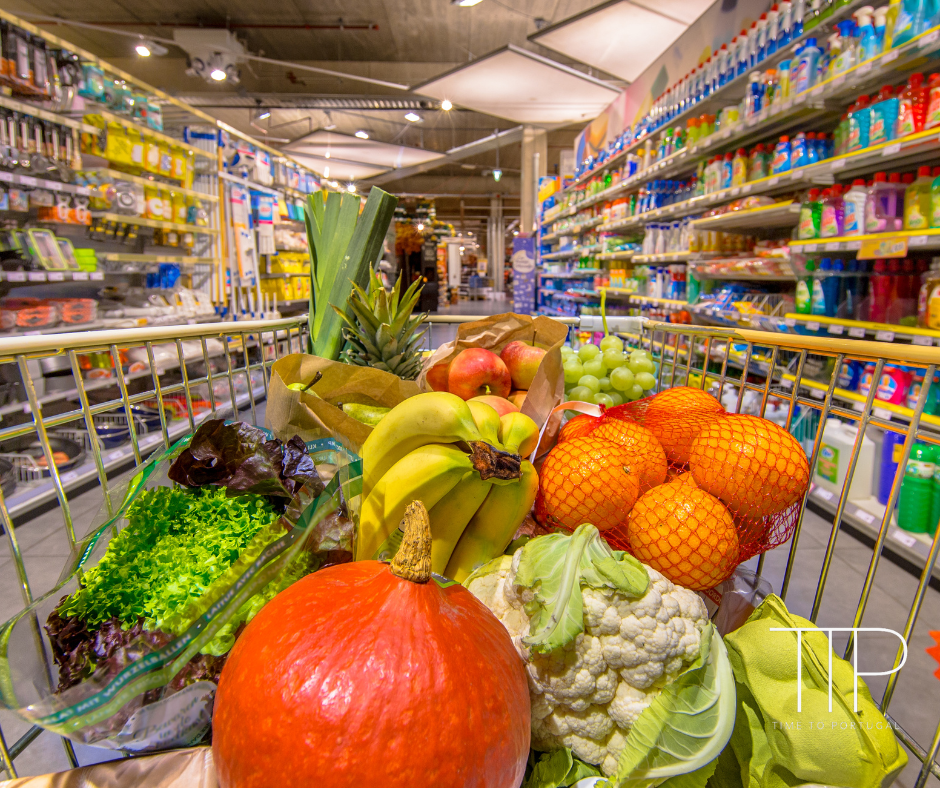Starting tomorrow, January 5, the prices of 46 food products will once again include the tax that has been suspended since April, but the increase in raw materials, transportation costs, tolls and even salaries will put upward pressure on consumer prices.
This Thursday sees the end of zero VAT. The measure that allowed 46 basic food items to be exempt from Value Added Tax (VAT) for almost nine months is coming to an end. Tomorrow, the items in question, which comprise almost 14,000 references, according to data from the Portuguese Association of Distribution Companies (APED), will be back on supermarket shelves 6% more expensive.
But the real increase, at the end of the month, is likely to be much higher than that 6%, since the reinstatement of VAT is accompanied by the usual updating of the tables of the various suppliers at the start of the year. Aware that Portuguese families “are very strangled” by rising interest rates, APED guarantees that its members will continue to “squeeze margins” to support them, but points out that the pressure on production costs, whether through rising toll prices, raw materials or wages, remains high.
The measure, say those in charge of the sector, was “the most scrutinized ever” in food retail, with ASAE – the Food and Economic Safety Authority – regularly monitoring the application of zero VAT on the shelves. Since April, ASAE has detected at least 174 cases of non-compliance with zero VAT, the authority’s inspector general, Luís Lourenço, said in Parliament. He said he didn’t know how the prices of the 46 products covered by this basket would react to the reinstatement of the tax. “Prices are free, the application of prices is not regulated by law, so what we can detect here are situations in terms of the law,” he added, pointing out that in the last week there has been a stabilization of prices and not “a pre-increase in prices”.
The director-general of APED, meanwhile, spoke of a “successful political measure”, especially as it was combined with 200 million euros in support for national producers. An envelope that only started arriving in September and of which 20 million have yet to be paid out, but which has helped to minimize the impact of farmers’ cost increases. “The measure was so successful that, in Spain, it was extended for another six months,” he recalls. Regarding the Portuguese government’s decision not to extend it, Gonçalo Lobo Xavier says it was a “political decision that can be accepted”, but warns of the existence of “enormous pressures on a significant number” of raw materials, such as cereals, cocoa, olive oil and animal feed.
Regarding the price increases – and Deco – the Association for Consumer Protection has been monitoring them and warning that the basket, without VAT, is already more expensive today than it was in April, the day before the measure came into force – APED recalls that “the market continued to function and zero VAT didn’t mean prices would crystallize”. For this reason, the association is “apprehensive” about 2024, “a year fraught with a lot of uncertainty, both politically and economically, and aggravated by the turmoil caused by the war in Ukraine and the worsening situation in the Middle East”.
Pedro Pimentel, managing director of Centromarca, has no doubt that zero VAT has helped to contain prices, “with an indisputable practical effect” of reducing the inflation rate, which he believes has not been limited to the 46 items in the basket chosen by the government. It did, he says, have “a buffer effect” on many other products. For the consumer, he says, it has meant the possibility of “diverting the money they saved on the zero VAT basket to other products, which were not prioritized by the state, but which are important to people”.
The head of Centromarca acknowledges that the measure was “one-off and had a limited impact”, but stresses that “more important than the savings it generated was its contribution to slowing inflation”. With the end of zero VAT, the “buffer effect” will also end and there will be a price correction, which Centromarca hopes will not be exaggerated. Pedro Pimentel stresses that “an excessive increase in prices will be frowned upon by consumers”.
APED and Centromarca have joined forces with CIP – Confederação Empresarial de Portugal (Portuguese Business Confederation) to demand harmonization of the VAT code so that all foodstuffs, whether processed or not, are subject to the minimum rate of 6%, instead of products paying 6% and others 13 and 23%. “Without a government, this is the time to make the different political forces aware of this issue,” says Pedro Pimentel, who recalls the issue of tax competitiveness in relation to Spain, which has now been aggravated by the extension of zero VAT in the neighboring country. APED promises to present news, in line with CIP, on this issue during the first half of the year.
CIP is convinced that the government can only gain from harmonizing VAT on food. Not least because, recalls Manuel Tarré, “it doesn’t make sense for food to be taxed as a luxury product”. He gives the example of rissoles or sausages, which pay 23% VAT, while sirloin steak pays 6%. “This is a serious asymmetry that penalizes families with fewer resources,” he says, assuring us that “Portugal is the only country in Europe to tax food products at 23%”. Applying the minimum 6% VAT rate to frozen food would cost 110 million euros, according to a study by CIP. The confederation wants all food products to be taxed at the minimum rate and, to compensate the state, suggests eliminating the 13% intermediate VAT rate, moving everything that is there – and is not a food product – to the maximum rate, which could drop from 21 to 23%. “With no loss of revenue,” assures CIP president Armindo Monteiro.

